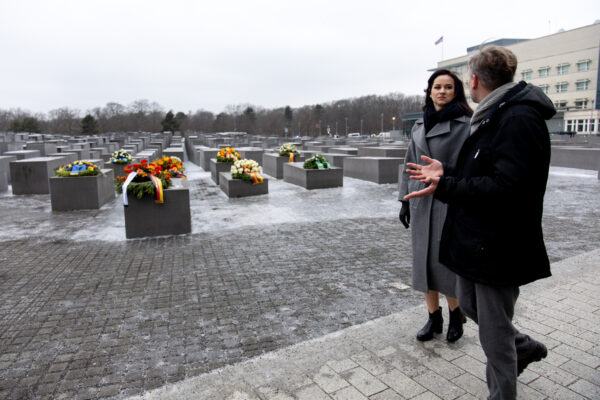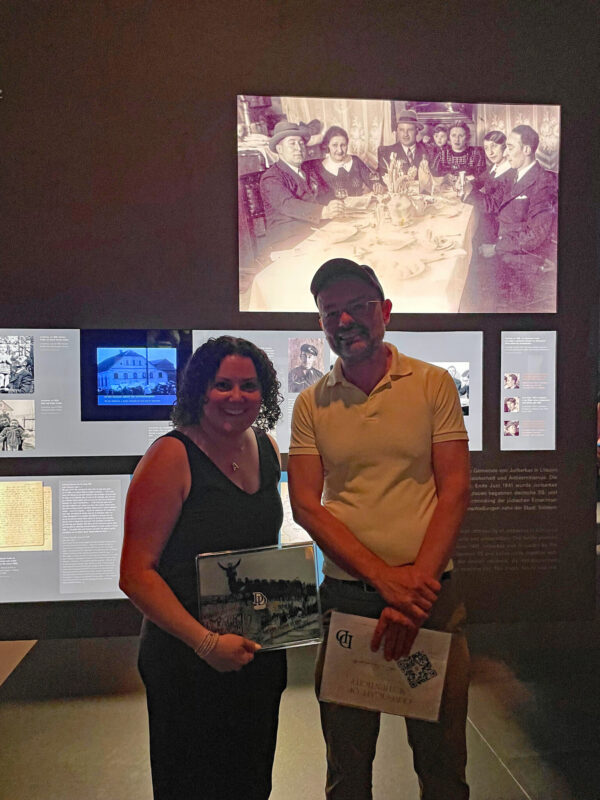The Denied. Persecuted as "Asocials" and "Professional Criminals" under National Socialism and Fascism in Europe
The conference “The Denied. Persecuted as ‘Asocials’ and ‘Professional Criminals’ under National Socialism and Fascism in Europe” will take place on November 6 and 7, 2025, at the NS Documentation Center of the City of Cologne.
(The main language of the conference is English, but some presentations will be in German, and continuous simultaneous translation is provided.)
PROGRAM
November 6, 2025
6:30 PM
Introduction by the organizers
7:00 PM
Round Table: More than a decade of struggle for the “Denied”: What has been achieved so far?
Andreas Kranebitter, Vienna, Documentation Centre of Austrian Resistance (DÖW)
Frank Nonnenmacher, Frankfurt am Main, Association for the Remembrance of the Denied Victims of National Socialism (Vevon)
Ulrike Winkler, Trier, Advisory Board of the Foundation Memorial to the Murdered Jews of Europe
November 7, 2025
9:30 AM
Introduction by the organizers
10:00 AM
First Panel: Continuities and Change in Exclusionary Politics – Experiences in Different Systems of Rule
César Lorenzo Rubio, Barcelona
Criminalization of Social Deviance in the Franco Dictatorship: the laws against vagrancy and against ‘social dangerousness’ (1933-1978)
Øystein Hetland, Oslo
Anomaly or Continuity? The Persecution of “Outsiders” in Occupied Norway
Jens Jäger, Cologne
Not-so-hidden persecution – Interpol’s activities during World War II
11:45 AM
Second Panel: Unknown Persecution in the Occupied Territories – Unknown Stories of Violence
Pavla Plachá, Prague
“Protection of the Volksgemeinschaft” in the Protectorate of Bohemia and Moravia. Overlooked fates of the “Asocial” and “Professional Criminal” women deported to Ravensbrück concentration camp.
Jérôme Courtoy / Daniel Thilman, Esch-sur-Alzette / Luxembourg
Denied, forgotten, rediscovered: Social-racist persecution in occupied Luxembourg
Rense Havinga, Groesbeek
Research on prisoners classified as “asocial” in concentration camps in the Netherlands
2:15 PM
Third Panel: Memories, Memorial Sites, Relatives of Marginalized Groups
Joanna Ostrowska, Warsaw
History of marginalized groups, especially female prisoners registered as “Asocials” and homosexual prisoners, and their place in Polish remembrance policy.
Núria Ricart Ulldemolins, Barcelona
Remembrance as a Process. The Les Corts Women’s Prison – an unfinished place.
Pascal Luongo, Marseille
Marseille 1943, a city and its inhabitants in focus: Anatomy of a Crime Against Humanity
4:00 PM
Concluding Discussion (with a summarizing commentary by Stefanie Endlich, Berlin)
__________
As part of this conference, the curators (Ulrich Baumann, Oliver Gaida, Laura López Mras, Christa Schikorra) also offer guided tours of the exhibition “The Denied” (November 6, 2025, 4:30 PM).
Translation will be available during the conference. We kindly ask you to register for the conference by November 1. Please send your registration to kontakt@die-verleugneten.de
Organizing Team: Ulrich Baumann, Henning Borggräfe, Oliver Gaida, Oriol López-Badell
__________
BACKGROUND
The conference “The Denied. Persecuted as ‘Asocials’ and ‘Professional Criminals’ under National Socialism and Fascism in Europe” is organized by the Foundation Memorial to the Murdered Jews of Europe, the NS Documentation Center of the City of Cologne, and the University of Barcelona / EUROM – European Observatory of Memories – with the support of Catalonia International, a public-private partnership that connects highly qualified individuals and institutions such as universities from Catalonia with partners worldwide.
The conference is part of the “Subaltern Memories” event series, organized annually by EUROM since 2022, to address the memories of specific social groups that have been silenced or marginalized – communities that have suffered severe oppression in the past. With this aim, it directly connects to the exhibition “The Denied. Victims of National Socialism 1933–1945 – Today”, which will be on display at the NS Documentation Center from October 8, 2025, to January 4, 2026.
Between 1933 and 1945, authorities and police adopted social prejudices. They controlled, harassed, and deprived tens of thousands of people of their freedom. Many were murdered. The ideological reference point was the concept of the “German Volksgemeinschaft”. Its establishment was to be achieved through the violent enforcement of an ‘order of inequality’.
To what extent did these principles of order play a role in the subjugation of large parts of Europe and its millions of non-German populations from 1938/39 onwards? In occupied Europe, robbery, forced labor, and racist, anti-Roma, and antisemitic mass murders were central to Nazi policy. Nevertheless: In addition to this main policy of extermination, the German occupiers also enforced exclusionary concepts of order against traditionally marginalized groups. However, as in Germany, they primarily relied on eugenic assumptions (“social racism”).
Research on this topic is still in its infancy and poorly coordinated. An assessment in the context of the overall history of German rule in Europe is missing. Central questions of the conference are therefore: In what context is the persecution of “Asocials” and “Professional Criminals” in Germany and the occupied territories? Is it a worthwhile research approach, and is it legitimate at all with regard to remembrance policy to focus on practices of exclusion of marginalized groups in the German-occupied territories – or, conversely, is there a risk of dilution, the risk that by including such intersectional perspectives and by focusing on these exclusionary aspects of persecution, the overall dimensions and main intentions of the German occupation regime will be lost sight of?
The conference focuses, on the one hand, on the legal frameworks and the respective institutions of persecution in individual occupied territories and allied fascist states such as Spain under the Franco dictatorship. On the other hand, a special focus is placed on the individual experiences of the persecuted and aspects of remembrance culture. Where did the persecuted speak? Can the assumption that they left no sources of their own be refuted? In post-war Europe, marginalizing stereotypes persisted, victims were denied compensation, and their experiences of injustice are denied. The continuities of exclusion persist to this day. The conference therefore also addresses current legal concepts and police practices.






